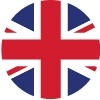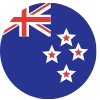Understanding the changing business environment and acting accordingly is critical to any company’s success. Aspirants with management skills are assisting many sectors around the world to achieve success. Yes, management is a skill! Pursuing an MBA from the right institution can help you gain insights and skills in better management. You can carve your career in business management with experienced faculty, amazing infrastructure, appropriate academics, and a globally recognised degree.
Why pursue an MBA in Canada?
Beautiful scenery, world-class universities, and an excellent quality of life are just a few of the reasons why international students prefer Canada for their higher education. This is far too certain for students interested in pursuing an MBA. The average annual fee to pursue an MBA in Canada ranges from 20,500 CAD to 112,000 CAD, depending on specialisation and university. Isn’t it fantastic? So, what makes pursuing an MBA in Canada unique?
- According to the Financial Times MBA Rankings 2021, 11 Canadian universities are among the top 200 in the world.
- According to the QS MBA rankings (2021), nearly six Canadian business schools and universities are ranked among the top 100 in the world.
- According to the global MBA ranking, 20 business schools in Canada are ranked among the top 200.
- Business management programmes are among the top ten subjects in Canada that international students prefer.
- Fantastic post-study work opportunities for MBA candidates! The Canadian government encourages the growth of SMEs and startups, which increases the demand for MBA candidates.
MBA Programs in Canada
A Master of Business Administration degree is now available in a variety of specialisations. In general, courses can be chosen based on several important factors, including the course’s area of interest and duration. In general, MBA programmes in Canada can be broadly classified based on course length. You’ll have a clearer picture of which course to take.
- Full-time MBA in Canada – A full-time MBA in Canada will prepare you to enter the job market as a leader. Get an incredible opportunity to learn about the diversity of the Canadian workforce. The course lasts two years and allows students to study full-time. To be admitted, international students must have high GMAT and language proficiency test scores.
- Part-time MBA Program in Canada – Excellent opportunity for aspirants who want to work while completing their management degree. The duration of this degree may range from three to six years, depending on the university you choose.
- Executive MBA in Canada – This programme is designed for executives and aspirants seeking senior-level management experience. It will take you 20 to 28 months to complete.
Top MBA Schools in Canada for Indian Students
Canada is regarded as one of the top five preferred destinations for international students pursuing management programmes. This is primarily due to the excellent track record of academic programmes at Canada’s Leading Universities. MBA universities in Canada have drawn international attention for their ability to prepare students to meet the demands of the global market. Pursuing Management programmes in Canada is less expensive than in other popular global destinations.
According to the QS MBA rankings (2021), six Canadian business schools and universities are ranked among the top 100 in the world. We selected the Top Universities for you to save you time and effort in selecting the best one.
| University | Global Rank | University Rank |
| Rotman School of Management | 45 | 1 |
| McGill University | 59 | 2 |
| Robert H. Smith School of Business | 66 | 3 |
| Ivey Business School | 69 | 4 |
| Schulich School of Business | 88= | 5 |
| Sauder School of Business | 94 | 6 |
| Alberta School of Business | 101 – 110 | 7 |
| John Molson School of Business | 121 – 130 | 8 |
| HEC Montréal | 141 – 150 | 9 |
| Dalhousie University | 151 – 200 | 10 |
The Best MBA Programs in Canada
- MBA in Finance – International students who want to pursue a career in financial reporting and analysis, portfolio management, corporate finance, market finance, and so on. The course will last approximately two years.
- MBA in HRM – Leading Canadian universities provide excellent MBA in HRM education. In the organisation, you can gain knowledge and build a career in people management, hiring, training, and employee productivity.
- International MBA (IMBA) Program in Canada This programme is open to international students who want to gain global experience. You can participate in international field studies, integrated curriculum, global courses, and globally recognised graduation. The programme typically lasts between 20 and 28 months.
Fees for an MBA in Canada
Because of the increased demand from aspirants, management programmes now offer a wide range of specialisations. Top universities are offering top-tier MBA courses to international students in order to provide students with global business exposure. When considering the various course selection factors, one of the most important is cost. If you are considering pursuing an MBA in Canada, here is an excellent resource that will keep you informed about financial planning.
Pre-departure expenses
| Types of Expenses | Expenses (USD) |
| Application Cost | 76 to 136* |
| Visa | 178 |
| Health Insurance | 10,000 |
| IELTS Fees | 185 to 190 |
| TOEFL Fees | 160 to 250 |
| Airfare | 450 to 1400 |
MBA Tuition Fees in Canada for International Students
| S.NO | University Name | Average Tuition Fee (CAD) |
| 1 | University of Toronto | 55,479 |
| 2 | MBA at McGill University | 43,516 |
| 3 | UWO | 1,09,649 |
| 4 | Queen’s University | 88,664 |
| 5 | York University | 48,563 |
| 6 | University of Alberta | 20,254 |
| 7 | University of British Columbia | 58,282 |
Cost of Living in Canada
| Common Utilities | Expenses (CAD) |
| Shared flat rents | 724 |
| Share of utilities | 55 |
| Internet subscription | 79 |
| Local transportation | 90 |
| Food | 11 |
| Cinema ticket | 14 |
| Pint of local beer | 6 |
Requirements for MBA Programs in Canada
MBA Documentation Requirements in Canada
In general, certain documents must be submitted to the respective Canadian university. These specifications may differ from one another. However, we provided you with the commonly expected documents, which are listed below:
- Academic certificates and transcripts
- Proficiency exam scorecards
- Bank statements
- Proof of work experience (if any)
- Letter of Recommendation (at least 2)
- MBA Essays
- SOP – Statement of Purpose (if needed)
- Current CV/Resume
- Photographs
- Visa
Indian Students’ MBA Eligibility in Canada
Studying MBA in Canada is simple if you meet the university’s eligibility requirements. The following are some basic criteria to help you prepare ahead of time.
- International students must have a bachelor’s degree or its equivalent from a recognised institution in any discipline.
- Practical and experiential learning is an essential component of management courses, where work experience is also important. Include your work experience certificate to gain an advantage over other applicants.
What Exam is Necessary for an MBA in Canada?
- Universities expect students to have English proficiency test certificates such as the TOEFL and IELTS.
- TOEFL: 90+
- IELTS: 6.5 to 7.0
- GMAT score is required, with aspirants needing a minimum of 550
MBA Programs in Canada
It is simple to obtain a suitable scholarship! For international students pursuing a master’s degree in Canada, there are over 5000 scholarships available, including government, non-government, and institutional scholarships.
| Scholarship | Offered by | Amount (CAD) |
| MBA Excellence Award | Rotman School of Management | 20,000 |
| Global Business Leader of Tomorrow | Sauder School of Business | 10,000 to 15,000 |
| Ivey MBA Scholarship | Ivey Business School | 10,000 |
| MBA Entrance Scholarship | Haskayne School of Business | 7500 to 11,500 |
| Scotiabank Scholarships | Schulich School of Business | 20,000 |
| MBA Admission Award | DeGroote School of Business | 1000 to 10000 |
| MBA in-course & Entrance Scholarship | DeGroote School of Business | 500 to 1000 |
| Hardeep Grewal MBA Scholarship Endowment | Concordia University | Variable |
Job opportunities in Canada after MBA
MBA graduates from Canada with a global-value degree are among the most sought-after professionals for a variety of positions. Opportunities abound in Canada, with approximately 150,000 jobs available from medium and large businesses. This is primarily due to the increased participation of SMEs, which are the backbone of the Canadian economy. Small and medium-sized businesses and startups are competing to hire MBA graduates for competitive salaries.
- Marketing Analyst – 51,000 CAD
- Marketing Manager – 84,900 to 141,400 CAD
- Manager-Sales and Marketing – 359,160 CAD
- Marketing Coordinator – 70,000 CAD
- Senior Human Resources Manager – 105,560 CAD
- Human Resource Manager – 71,208 CAD
- HR Coordinator – 47,227 CAD
- Human Resources Director – 100,000 CAD
- Human Resources Coordinator – 350,400 CAD
- Consultant – 85,000 CAD
- Business Development Officer – 75,000 CAD
- Business Management Consultant – 69,000 CAD
- Administrative Manager – 376,680
(The salaries listed above are annual figures.)
Salary Following an MBA in Canada
In addition to large recruiters, the Canadian market is dominated by small and medium-sized businesses. As a result, the demand for employers in various industries has been high in recent decades. Business management has a well-known scope that is expanding year after year. Furthermore, aspirants with high-paying jobs benefit greatly from pursuing an MBA in Canada. Top-paying recruiters are looking for passionate graduates in fields such as business management, operations management, human resources, finance, traditional and digital marketing.
| Top employers | Average Annual Salary (CAD) |
| Goldman Sachs | 193,000 |
| Amazon | 185,000 |
| HSBC | 83,000 |
| RBC Asset Management | 150,000 |
| KPMG, LLP | 54,000 to 123,000 |
| EY | 54,000 to 160,000 |
| TD Canada | 44,000 to 120, 000 |
| Canadian Imperial Bank of Commerce | 40,000 to 98,000 |
| Thomas Reuters | 80,000 |
| Rogers Group Inc | 79,000 |
Work permit in Canada after an MBA
Aspirants prefer to stay and work in Canada because of the vibrant, multicultural society and growing demand for business graduates. After completing their MBA programmes, graduates are welcomed by the Canadian government. As a result, obtaining a work permit after completing an MBA is simple and painless in Canada. Yes, you can obtain a work permit quickly and easily by taking a few simple steps.
We gathered some important information about the Work permit policy after MBA, which is listed below.
- International students have 180 days after graduation to apply for a post-graduation work permit.
- Another advantage of having a work permit policy is that graduates are able to work in any company in Canada.
- Graduates can benefit from work permits.
It’s no surprise that Canada is the most popular international student destination. Obtaining an MBA from Canada enhances your professional expertise, which is recognised globally. Furthermore, the Canadian government’s welcoming policies and regulations encourage international students to pursue management programmes. Obtaining expert advice is unquestionably necessary for making sound decisions about MBA specialisation and universities. Starbright Overseas Education is affiliated with top Canadian institutions to ensure a smooth transition. Best wishes to all upcoming MBA graduates.
FAQ
Q- What is the Purpose of an MBA in Canada?
Believe it or not, there is no other course that is as concise and profitable as MBA that can help you earn more money. MBA graduates in Canada earn an average annual salary ranging from 84,900 to 141,400 CAD. With better career opportunities, international students are actively seeking a Management degree in Canada. In fact, financial services are the most popular in Canada, with an average of 11.6% from 2008 to 2019. If you decide to pursue an MBA in Canada, it will undoubtedly be worthwhile.
Q- Which university in Canada offers the best MBA programme?
| University | Global Rank | University Rank |
| Rotman School of Management | 45 | 1 |
| McGill University | 59 | 2 |
| Robert H. Smith School of Business | 66 | 3 |
| Ivey Business School | 69 | 4 |
| Schulich School of Business | 88= | 5 |
| Sauder School of Business | 94 | 6 |
| Alberta School of Business | 101 – 110 | 7 |
| John Molson School of Business | 121 – 130 | 8 |
| HEC Montréal | 141 – 150 | 9 |
| Dalhousie University | 151 – 200 | 10 |
Q– Which MBA Specialization is in Demand in Canada?
- General Management
- Marketing
- Finance
- Human Resources
- Entrepreneurship
- Operations Management
- Hospitality
Q – How Much Does an MBA Cost in Canada?
| S.NO | University Name | Average Tuition Fee (CAD) |
| 1 | University of Toronto | 55,479 |
| 2 | MBA at McGill University | 43,516 |
| 3 | UWO | 1,09,649 |
| 4 | Queen’s University | 88,664 |
| 5 | York University | 48,563 |
| 6 | University of Alberta | 20,254 |
| 7 | University of British Columbia | 58,282 |
Q– What Exam is Required for MBA in Canada?
- Universities expect English proficiency tests certificates that include TOEFL and IELTS, which students are expected to have,
- TOEFL: 90+
- IELTS: 6.5 to 7.0
- GMAT score is mandatory, where aspirants need to score a minimum of 550.





